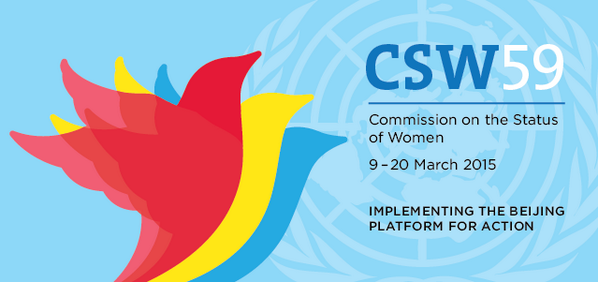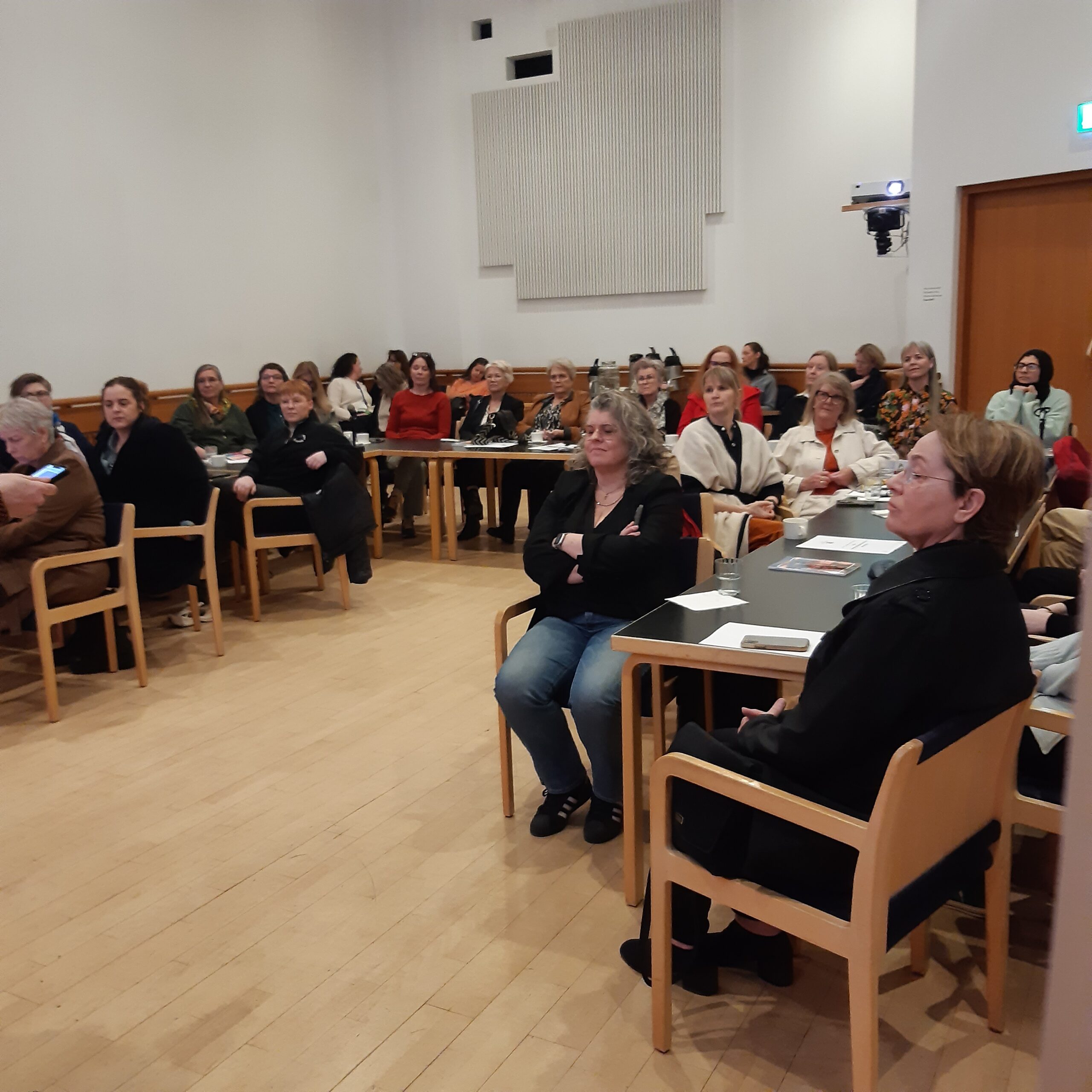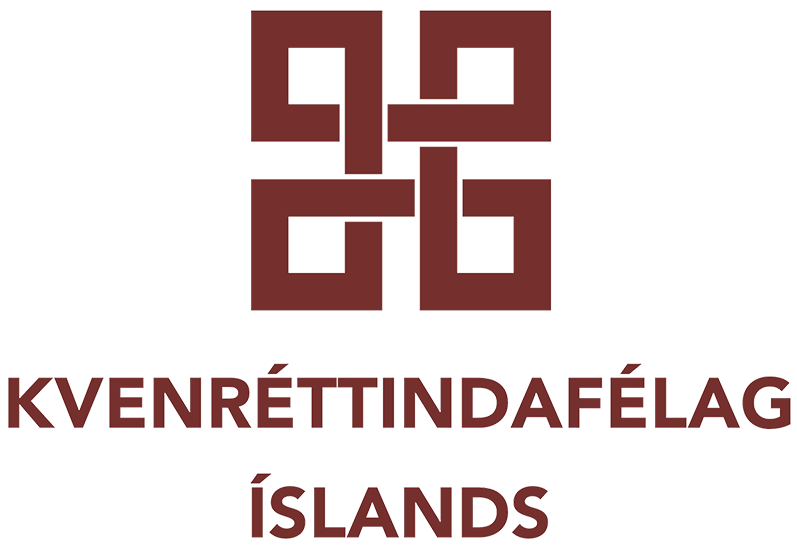
Samtök út um allan heim hafa skrifað undir ályktun þar sem því er mótmælt að Kvennanefnd Sameinuðu þjóðanna skuli ekki með virkum og afgerandi hætti tryggja áframhaldandi mannréttindabaráttu allra kvenna, einnig lesbía, tvíkynhneigðra kvenna, transkvenna og intersex fólks.
9. mars 2015, á opnunarfundi Kvennanefndar Sameinuðu þjóðanna, var samhljóða samþykkt ráðherrayfirlýsing í tilefni þess að 20 ár eru liðin frá því að Pekingsáttmálinn var undirritaður og Pekingáætlunin samþykkt.
Þessi yfirlýsing var skrifuð á bak við læstar dyr og höfðu kvennasamtök lítinn sem engan aðgang að þeim samningaviðræðum sem áttu sér stað við ritun hennar. Í gegnum tíðina hafa þess lags yfirlýsingar verið samþykktar ekki við upphaf fundar Kvennanefndarinnar, heldur í lok hans, eftir tveggja vikna samningaviðræður þar sem kvennasamtök og önnur frjáls félagasamtök hafa tekið virkan þátt.
Kvenréttindafélag Íslands er samstíga mannréttindasamtökum heimsins og hefur skrifað undir eftirfarandi ályktun.
Statement in Reaction to Political Statement of the 59th Commission on the Status of Women
We, the undersigned non-governmental organizations and activists working for the promotion and protection of human rights and empowerment of all persons, regardless of their sexual orientation, gender identity, gender expression, or intersex status, would like to express both disappointment and cautious optimism on the occasion of the adoption of the Political Declaration at the 59th Session of the United Nations Commission on the Status of Women.
We are deeply disappointed with how the process leading up to the adoption of this year’s Political Declaration of the Commission on the Status of Women has unfolded, as the closing of negotiations before the formal start of the Commission has meant there has been no effective process of consultation with civil society.
It is important to ensure that all UN processes include meaningful participation of civil society and that a diverse array of voices informs all UN processes. Lesbians, bisexual women, trans and intersex persons have been involved in organizing in UN women’s spaces, prior, during, and after the development and implementation of the Beijing Platform. We are here to remind you that, twenty years ago in Beijing, sexual orientation was discussed openly and extensively. In other UN fora these issues are still discussed openly and supported widely. We demand the same level of inclusion at the Commission on the Status of Women.
Even in the face of this disrespect for our rights, we are cautiously optimistic that this Political Declaration can help guide States as they move forward towards a fuller and more equal implementation of the Beijing vision.
- We are optimistic because many governments expressed concern with the uneven progress towards Beijing priorities, in part because of the persistence of intersecting forms of discrimination, marginalization, and vulnerability that affect different groups of women and girls.
- We are optimistic because governments pledged to take concrete actions to overcome gender stereotypes, transform discriminatory norms and strengthen implementation of laws and policies for all women and girls.
- We are also optimistic because the Political Declaration acknowledges the need to empower all women and girls through a transformative Post-2015 negotiation process.
None of this is enough.
Moving forward, we call for bold leadership from governments in implementing a true vision for transformative development and empowerment that also benefit lesbians and bisexual women, and trans and intersex persons.
Our realities, work, and organizing demonstrate dire need for this leadership. Individual women and girls, as well as specific groups of women and girls, are excluded from social benefits and the protection of the law because of whom we love, what we look like, the work we do, or because we exercise bodily autonomy and choice. This exclusion constitutes a violation of our most basic rights, and is incompatible with the goals of the Beijing Declaration and Platform for Action.
We have insisted that the Post-2015 agenda acknowledge the devastating impact of intersecting discrimination and marginalization in our lives everywhere. Study after study concludes that individuals stigmatized or targeted because of their actual or perceived sexual orientation or gender identity face discrimination, violence and bullying that can force them out of schools; people assumed to be lesbian, bisexual, trans, or intersex are kicked out of housing or denied employment; legal and socially condoned discrimination against our communities marginalizes many of us, putting us at additional risk of violence, HIV, and other health problems. Discrimination and stigma further prevent us from seeking needed care. Too often, the result is preventable suffering and poverty.
We demand that governments move towards a truly transformative Post-2015 agenda. Such an agenda must address the devastating effects of high levels of violence, climate change, unsustainable and unjust economic systems that affect us all, in particular vulnerable and marginalized groups such as LBTI persons. This agenda must be human rights based, ecologically sustainable and adhere to global development partnership agreements based on historical responsibility and common but differentiated responsibilities of all countries. The agenda must also overcome social and structural barriers that exclude persons on the basis of sexual orientation, gender identity, gender expression, and intersex status.
As the Post-2015 negotiations continue, we demand to be recognized in these negotiations that directly impact our communities and lives. We refuse to be rendered invisible, or to have development policies touted as progress even as they ignore, marginalize or create further risk for us. Going forward, we demand accountability and transparency in negotiations, and meaningful and equal recognition in education, work, governance, economy, social security, health care and all other areas of concern. We will continue our work and organizing to see these demands met.
Our lives are nonnegotiable.
- Access Chapter 2, South Africa
- Action Canada for Sexual Health and Rights, Canada
- Advocates for Youth, United States
- AIDS Accountability International (AAI), South Africa
- AIDS Legal Network (ALN), South Africa
- Akahata-Equipo de Trabajo en Sexualidades y Géneros, Latin America Region
- ARC International, Global
- Associação ILGA Portugal – Intervenção Lésbica, Gay, Bissexual e Transgénero, Portugal
- Astraea Lesbian Foundation for Justice, United States
- Balance, México
- Canadian HIV/AIDS Legal Network, Canada
- Centre for the Development of People (CEDEP), Malawi
- Centro de Promoción y Defensa de los Derechos Sexuales y Reproductivos (PROMSEX), Perú
- Closet de Sor Juana AC, Mexico
- COC Netherlands (COC), Netherlands
- Diverlex Diversidad e Igualdad a Través de la Ley (Diverlex), Venezuela
- Diverse Voices and Action for Equality (DIVA for Equality), Fiji
- Drodrolagi Movement (droMo), Fiji
- Euroregional Center for Public Initiatives (ECPI), Romania
- The Fellowship of Reconciliation (FOR), United States
- FOKUS – Forum for Women for Development, Norway
- Fokus Muda (Indonesian Young Key Population Network), Indonesia
- Freedom House, United States
- Gamacca Community, Indonesia
- Gender Proud, United States
- Global Action for Trans* Equality (GATE), Global
- Global Inklusi untuk Perlindungan AIDS, Indonesia
- Global Justice Institute (GJI), United States
- Haus of Khameleon (HK), Fiji
- Human Rights Campaign (HRC), United States
- Humanist Institute for Co-operation with Developing Countries (Hivos), The Netherlands
- IDAHO-T International Day Against Homophobia and Transphobia Committee, Global
- The Inner Circle (TIC), South Africa
- Instituto Runa de Desarrollo y Estudios sobre Género (Instituto Runa), Peru
- International Gay and Lesbian Human Rights Commission (IGLHRC), United States
- International Lesbian and Gay Association (ILGA), Global
- The International Lesbian, Gay, Bisexual, Transgender and Queer Youth and Student Organisation (IGLYO), Europe Region
- International Women’s Health Coalition (IWHC), United States
- Iranti org, South Africa
- Just Associates (Jass), Americas Region
- Komunitas Sehati Makassar (KSM), Indonesia
- Kvenréttindafélag Íslands (KRFÍ), Iceland
- Manodiversa Asociacion Civil (MANODIVERSA), Bolivia
- Metropolitan Community Churches (MCC), United States
- Micro Rainbow International (MRI), United Kingdom
- msulmans inclusifs de france (MIF), Paris France
- Muslims for Progressive Values (MPV), United States
- Network of European LGBT Families Associations (NELFA), Belgium
- The Norwegian Lesbian, Gay, Bisexual and Transgender organization (LLH), Norway
- Organisation Intersex International Australia Limited (OII Australia), Australia
- Pacific Islands Safety and Prevention Project Inc. (the Project), New Zealand
- Pathways of Women’s Empowerment, Global
- People’s Arts Collective of New Haven (PAC), United States
- Quality of Citizenship Jamaica (QCJ), Jamaica
- Rainbow Action South Korea, South Korea
- Rainbow Pride Foundation (RPRFL), Fiji
- Russian LGBT Network, Russia
- Samoa AIDS Foundation (SAN), Samoa
- Sexuality Policy Watch (SPW), Brazil
- Social, Health and Empowerment (S.H.E), Africa Region
- Solidarity Alliance for Human Rights (SAHR), Nigeria
- St. Paul’s Foundation for International Reconciliation, United States
- Stichting Global Alliance for LGBT Education (GALE), Netherlands/Global
- Stonewall, United Kingdom
- The Swedish Federation for LGBTQ Rights (RFSL), Sweden
- Swiss Rainbow Families Association, Switzerland
- Taiwan Tongzhi (LGBT) Hotline Association (TTHA), Taiwan
- United and Strong Inc (U&S), Saint Lucia
- United Belize Advocacy Movement (UniBAM), Belize
- Urgent Action Fund for Women’s Human Rights (UAF), United States
- Without Restrictions (Lutter contre l’homophobie), Tunisia
- Women and Media Collective (WMC), Sri Lanka
- Women’s Health and Equal Rights Initiative (WHER), Nigeria
2 athugasemdir
Comments are closed.




Sælar
Vil benda vefstjóra á ásláttarvillu í texta hér f. ofan.
Ártalið „2015“ er skrifað „2915“.
Sem fyrrum ritstjóri 19. júní get ég ekki annað en komið þessu áleiðis.
Eflaust verða fleiri til þess.
Bestu kveðjur
Jónína M. Guðnadóttir
Mikil snilld, Jónína!
Við erum framúrstefnulegar, við kvenréttindakerlingar, en ekki svoooo framúrstefnulegar!
Breyti þessu um hæl!
bestu kveðjur, Brynhildur